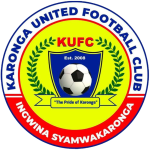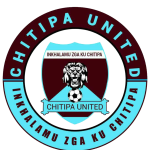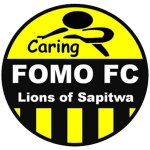School enrollment and learner retention were a big problem at Mkhula CCAP Primary School in the area of Group Village Head (GVH) Sani Maganga in Traditional Authority Ndindi in Salima.
Worse still, less than 20 percent of the children that enrolled had the opportunity to complete their primary education.
Education is tat the heart of the 2030 Agenda for sustainable development; hence, it is identified as a standalone goal (Sustainable Development Goal – SDG 4). It is also present as targets under other SDGs on health, growth and employment, sustainable consumption and production, and climate change.
In one of its recent reports, the World Bank described as one of the ‘most powerful instruments for reducing poverty and inequality and it sets the foundation for sustained economic growth’.
The bank said households with educated people stand a better chance of lifting themselves out of poor living conditions than households without educated people in them.

Unfortunately, majority of the children in Malawi do have the privilege of access quality education, especially in the rural areas.
Parents have cited poverty, hunger and economic deprivation as some of the factors hindering them from educating their children.
Other factors include long distances children have to cover to get to their nearest school and inadequate or outright absence of sanitation facilities in some schools, which denies girls in puberty ages their right to privacy.
Mkhula CCAP Primary School was not spared from these challenges.
“Every year, hundreds of learners would drop out, citing poverty and hunger in their families. It was sorry situation,” narrated Geoffrey Chawala, the school’s head teacher.
With financial support from the Government of Ireland, three United Nations (UN) agencies – World Food Program, UNFPA and UNICEF – mobilized resources for the implementation of the UN Joint Program on Girls Education (JPGE) whose key activities included Home Grown School Meals Programme in (HGSM), Safe Schools Programme (Child Protection), Menstrual Hygiene Programme and Sexual and Reproductive Health Rights (SRHR).
Others were adolescent nutrition (IFA supplements given to girls), teen mother re-admission advocacy and enforcement, comprehensive sexuality education and Continuous Professional Development (CPD).
Speaking after inspecting the school on Wednesday, UN Women Country Representative, Letty Chawara, said the UN family was impressed with the results the project has achieved, so far.
She said among, others, that the project has helped improve the enrolment, attendance and performance rates.
According to the head teacher, notable achievements of the UN Joint Programme on Girls Education include increase in enrolment from 907 in 2014 to 2,031 (946 boys 1,085 girls) in 2019/2023, increase in pass rate for girls from 40 percent (2001-2014) to 99 percent in 2023 and attendance of girls has improved from 78 percent in 2013 to 98 percent in 2023.
Chawala added that 1, 995 boys and girls benefitted from the cash distributions during the Covid-19 response in 2020 while 250 farmers benefited from a stable market at the school through Home Grown School Meals.
“There has also been an increase in girls sitting for national exams has increased from 11 in 2008 to 44 in 2023, while the passing rate for national exams has increased from 65 percent in 2018 to 97 percent in 2023. The rate of selection secondary school has increased from 15 percent in 2003 to 75 percent in 2023,” he said.

Through safe schools, the programme has established community policing (a child protection committee), they have also set up a complaint box, and put up posters with contacts to whom learners can report cases of abuse and harassment.
The school has also established a learner’s council. Additionally, there is an empowered community and school structures that are taking a leading role in the development of their school. They established a banana orchard, vegetable garden and afforestation of the school surroundings. The school managed to source cash from kitchen sales. The money was used to purchase buckets, chalk, scheme notepads, tree seedlings, water can and charts.
There has also been an improved health status of learners through the provision of deworming treatment.

















